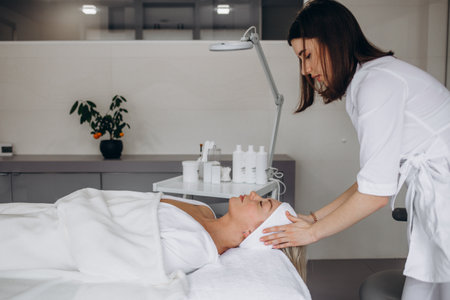1. Introduction: The Beauty Dilemma
The UK’s beauty and skincare market is experiencing unprecedented growth, with British consumers investing more than ever in their appearance. From over-the-counter (OTC) serums and creams lining high street shelves to the increasing popularity of professional aesthetic treatments like chemical peels, laser therapy, and injectables, the options seem endless. This dynamic landscape has sparked a timely debate: can OTC products truly compete with the results offered by professional treatments? As British consumers become more discerning—seeking both convenience and efficacy—the comparison between these two approaches has never been more relevant. Understanding the strengths and limitations of each option not only empowers individuals to make informed decisions but also reflects broader trends in how we define beauty, value expertise, and balance our budgets in today’s fast-paced UK lifestyle.
2. Defining Over-the-Counter vs. Professional Treatments
When exploring the question, “Can Over-the-Counter Products Compete with Professional Treatments?” its essential to clarify what each option means within the UK context. Understanding the differences not only helps consumers make informed decisions but also highlights why certain products or treatments may be more suitable depending on individual needs and expectations.
What Are Over-the-Counter (OTC) Products?
Over-the-counter products refer to items that can be purchased without a prescription or direct supervision from a healthcare professional. In the UK, this category includes a wide range of skincare and cosmetic products available in high street chemists such as Boots or Superdrug, supermarkets, and online retailers. Popular examples among British consumers include:
- Cleansers and moisturisers: Simple, CeraVe, NIVEA
- Anti-ageing serums: Olay Regenerist, The Ordinary Hyaluronic Acid
- Blemish treatments: Sudocrem, Freederm Gel
- Whitening toothpastes: Colgate Max White, Oral-B 3D White
What Are Professional Treatments?
Professional treatments are interventions performed or prescribed by qualified practitioners—such as dermatologists, dentists, or aesthetic clinicians—in clinical settings. These procedures often require advanced technology, specialised training, and regulated substances. Some well-known professional treatments favoured in the UK include:
- Chemical peels and microdermabrasion: Administered by skincare clinics
- Laser hair removal and IPL: Provided at reputable laser centres
- Bespoke facials and injectable anti-wrinkle treatments (e.g., Botox): Offered by registered aesthetic practitioners
- Professional teeth whitening: Conducted by dentists using medical-grade agents
A Comparative Overview
| Treatment Type | Where Obtained | Examples | Level of Supervision | Main Appeal in the UK |
|---|---|---|---|---|
| Over-the-Counter (OTC) | Chemists, supermarkets, online shops | The Ordinary Serum, Sudocrem, Colgate Toothpaste | No professional supervision required | Affordable, convenient, easy access for daily use |
| Professional Treatment | Clinics, dental practices, hospitals | Chemical Peels, Laser Hair Removal, Dentist Whitening | Supervised by qualified professionals | Tailored solutions, higher efficacy for specific concerns |
Cultural Preferences Among British Consumers
The British public often values convenience and cost-effectiveness when choosing OTC options but also seeks reassurance and visible results from professional services. Familiar high-street brands offer trust and accessibility for routine self-care, while clinical interventions are chosen for more dramatic or targeted improvements under expert guidance.

3. Efficacy: Do OTC Solutions Measure Up?
When weighing the effectiveness of over-the-counter (OTC) products against professional treatments, it is crucial to evaluate the scientific evidence behind both approaches. In the UK, clinical guidelines and peer-reviewed studies offer valuable insight into what consumers can realistically expect from each option.
OTC products, including creams, serums, and oral supplements available in high street chemists such as Boots or Superdrug, often advertise benefits like clearer skin, reduced wrinkles, or brighter teeth. However, these claims are typically supported by limited clinical evidence or small-scale studies. According to guidance from the National Institute for Health and Care Excellence (NICE), many OTC skincare and cosmetic products provide only modest results because they contain lower concentrations of active ingredients compared to those used by professionals.
Professional treatments—whether conducted in a clinic by a dermatologist or aesthetic practitioner—are usually backed by more robust clinical trials and are regulated under stricter standards. Treatments such as prescription-strength topical medications, chemical peels, laser therapies, or injectable fillers are designed to address specific concerns with higher efficacy. For example, NHS-backed research highlights that prescription retinoids outperform their OTC counterparts in treating acne and signs of ageing due to their proven potency and formulation.
It’s also important to consider that while some OTC products may deliver visible improvements for mild concerns or maintenance, they rarely match the transformative results seen with professional intervention. The British Association of Dermatologists consistently notes that individuals seeking significant or long-term change should consult qualified practitioners who can tailor treatments according to medical evidence and individual needs.
In summary, while OTC solutions can be beneficial for everyday care and minor issues, current UK clinical guidelines suggest that professional treatments remain the gold standard for those desiring measurable and lasting outcomes. Consumers should scrutinise product claims critically and seek advice from reputable sources before making decisions about their skincare or cosmetic routines.
4. Cost, Convenience, and Accessibility
When comparing over-the-counter (OTC) products to professional treatments within the UK, three factors often play a decisive role: cost, convenience, and accessibility. Each of these elements directly impacts consumer behaviour and preferences on the British high street.
Cost Considerations
One of the most apparent distinctions between OTC products and professional treatments is pricing. OTC products are generally more affordable and allow consumers to manage their skincare or health concerns without a significant financial commitment. In contrast, professional treatments—whether provided by a GP, dermatologist, or aesthetic clinic—tend to involve higher upfront costs due to the expertise and technology involved.
| Aspect | OTC Products | Professional Treatments |
|---|---|---|
| Average Cost per Session/Product | £5 – £40 | £50 – £200+ |
| Payment Model | One-off purchase, pay-as-you-go | Appointment-based, may require multiple sessions |
| Long-term Investment | Lower cumulative spend | Higher cumulative spend for lasting results |
Convenience on the British High Street
The accessibility of OTC products is significantly bolstered by their widespread availability in high street chemists such as Boots or Superdrug, as well as supermarkets and online retailers. This ready access means that consumers can purchase solutions at their convenience without waiting for an appointment or referral. By contrast, professional treatments require scheduling, travel, and sometimes long waiting periods—especially within the NHS system or popular private clinics.
Accessibility Breakdown
| OTC Products | Professional Treatments | |
|---|---|---|
| Availability | Easily available on high street and online across the UK | Limited to clinics, salons, or medical practices; often region-dependent |
| Time Commitment | No appointments needed; immediate use possible | Pre-booked appointments; may involve wait times and follow-ups |
| User Control & Flexibility | User decides when and how to use product at home | Treatment schedule dictated by practitioner availability and protocols |
The Impact on Consumer Choices in the UK Context
The combination of lower price points, ease of acquisition on the high street, and flexibility makes OTC products an attractive choice for many Britons seeking quick fixes or maintenance routines. However, for those requiring specialist intervention or desiring more dramatic results, professional treatments—despite their higher cost and logistical hurdles—remain a preferred option. Ultimately, the British consumer weighs cost against perceived value, balancing convenience with effectiveness when choosing between OTC solutions and professional care.
5. Safety and Regulation: A UK Perspective
When considering whether over-the-counter (OTC) products can truly compete with professional treatments, it is essential to examine the regulatory landscape in the UK and how it impacts consumer safety. Both OTC products and professional treatments are subject to distinct sets of regulations, reflecting their intended use, potential risks, and the level of expertise required for safe administration.
OTC products, such as skincare creams, teeth whitening kits, or topical hair loss solutions, are generally regulated by authorities like the Medicines and Healthcare products Regulatory Agency (MHRA) or, in the case of cosmetics, under the UK Cosmetics Regulation. These regulations ensure that ingredients are safe for general use and that labelling is clear and accurate. However, they do not require the same rigorous testing or oversight as prescription medications or devices used by professionals. This means OTC products must be deemed safe for use without supervision but may have limitations in terms of efficacy and potential side effects.
In contrast, professional treatments—ranging from prescription-strength dermatological medications to advanced aesthetic procedures—are strictly controlled. Healthcare professionals administering these treatments must be appropriately qualified and registered with relevant bodies such as the General Medical Council (GMC), General Dental Council (GDC), or Nursing and Midwifery Council (NMC). Additionally, clinics offering such services are regularly inspected by organisations like the Care Quality Commission (CQC) to ensure adherence to safety protocols and quality standards.
The difference in regulation directly affects consumer safety. While OTC products offer convenience and accessibility, users must rely on self-assessment and may inadvertently misuse products or experience adverse reactions. Professional treatments provide a higher degree of safety through expert assessment, customisation of treatment plans, and immediate management of any complications.
For UK consumers, understanding this regulatory distinction is crucial when weighing the benefits of OTC options versus seeking professional care. Although both pathways have their place in personal health and beauty routines, awareness of safety standards helps individuals make informed decisions about which route best meets their needs while minimising risk.
6. Case Studies: British Experiences
When discussing whether over-the-counter (OTC) products can truly compete with professional treatments, it is invaluable to turn to real-life accounts from individuals across the UK. The following testimonials reflect a range of experiences, highlighting both the promise and limitations of OTC solutions compared to in-clinic procedures.
Susan, 34, London: Tackling Fine Lines
Susan had long been concerned about fine lines around her eyes. She initially invested in a high-street retinol cream, enticed by its accessibility and affordability. “After six months, I noticed some improvement—my skin felt smoother, but the deeper lines remained,” she explains. Eventually, Susan opted for a professional microneedling session at a reputable London clinic. “The results were much more pronounced and lasted longer than anything I achieved with creams alone.”
Mark, 47, Manchester: Managing Hair Loss
Struggling with thinning hair, Mark tried several OTC shampoos and topical serums widely available at UK pharmacies. “There was minimal change after a year—I was hoping for regrowth but mostly saw only less shedding,” he recalls. Mark then consulted a trichologist and began a course of prescription medication combined with clinical laser therapy. “The professional approach was more costly but delivered noticeable results within months.”
Emma, 29, Glasgow: Dealing with Acne Scarring
Emma experimented with various OTC chemical exfoliants and spot treatments for post-acne scarring. “While my skin tone evened out slightly, the texture didn’t improve much,” she notes. It wasn’t until Emma underwent a series of professional chemical peels that she observed significant changes. “The difference was night and day—my confidence soared.”
A Balanced Perspective
These British case studies underscore a common theme: while OTC products often provide convenience and incremental improvements, professional treatments tend to offer more dramatic and lasting results for those seeking substantial aesthetic changes. However, many UK users also appreciate starting with OTC options before committing to pricier procedures. Ultimately, the decision hinges on individual needs, expectations, and budget considerations.
7. Conclusion: Weighing Your Options
When it comes to deciding between over-the-counter (OTC) products and professional treatments, British consumers are faced with a variety of choices, each offering distinct advantages and considerations. OTC products provide convenience, affordability, and easy accessibility—making them appealing for those seeking quick solutions or maintenance routines without the need for appointments or hefty price tags. They can be particularly suitable for individuals with milder concerns or those just beginning their skincare or wellness journey.
On the other hand, professional treatments often deliver more targeted and potent results, especially for persistent or complex issues. With the expertise of trained practitioners and access to advanced technologies, these options may offer a higher level of safety and efficacy, albeit at a greater financial investment and time commitment. For many Britons, the peace of mind that comes with professional supervision is invaluable, particularly when addressing sensitive skin conditions or specific aesthetic goals.
Ultimately, the best path depends on your personal needs, expectations, and lifestyle. It’s important to consider factors such as your budget, time constraints, desired outcomes, and any underlying health concerns. Consulting with a healthcare professional or a qualified specialist can also help clarify which approach aligns best with your individual circumstances.
In summary, both OTC products and professional treatments have their rightful place in the UK market. A balanced approach—perhaps incorporating elements of both—can often yield the most satisfactory results. By weighing up your options thoughtfully and staying informed about the latest advancements, you can make confident decisions that support your wellbeing and meet your unique expectations.

